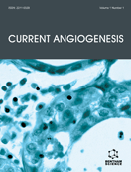Abstract
Inflammation is implicated in the progression of multiple types of cancers including lung, colorectal, breast and hematological malignancies. Cyclooxygenases (Cox) -1 and -2 are important enzymes involved in the regulation of inflammation. Elevated Cox-2 expression is associated with a poor cancer prognosis. Hematological malignancies, which are among the top 10 most predominant cancers in the USA, express high levels of Cox-2. Current therapeutic approaches against hematological malignances are insufficient as many patients develop resistance or relapse. Therefore, targeting Cox-2 holds promise as a therapeutic approach to treat hematological malignancies. NSAIDs and Cox-2 selective inhibitors are anti-inflammatory drugs that decrease prostaglandin and thromboxane production while promoting the synthesis of specialized proresolving mediators. Here, we review the evidence regarding the applicability of NSAIDs, such as aspirin, as well as Cox-2 specific inhibitors, to treat hematological malignancies. Furthermore, we discuss how FDA-approved Cox inhibitors can be used as anti-cancer drugs alone or in combination with existing chemotherapeutic treatments.
Keywords: Cancer, cyclooxygenase, hematological malignancy, prostaglandin, NSAIDs.
 21
21

